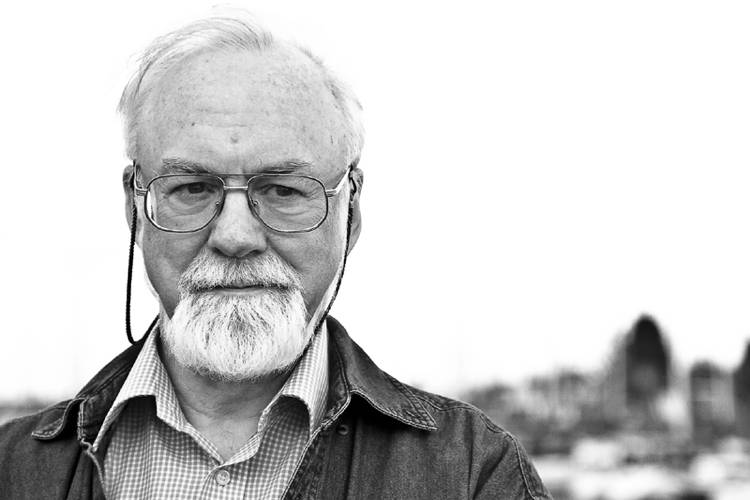JOHN McCABE: 21st APRIL 1939 - 13th FEBRUARY 2015
JOHN McCABE: 21st APRIL 1939 - 13th FEBRUARY 2015JOHN McCABE: 21st APRIL 1939 - 13th FEBRUARY 2015
John McCabe, my husband of more than 40 years, was a man of absolute integrity and honour. He was devoted to the art of music, which ranked higher with him than any personal success. He showed no jealousy or malice at the good fortunes of colleagues and peers, delighting in the success of their musicianship, and if possible furthering their interests by performing their works, in some cases by arranging concerts, and in others performing or recording their keyboard works himself. His knowledge of music was encyclopaedic, and his enthusiasms spread widely, from Byrd to Bruckner, from Haydn to Satie, Rawsthorne and Tippett, via Vaughan Williams, Schubert, Schumann, Liszt, Ravel, Debussy – the list is endless, though artistic quality was the basis of his admiration.

Photo: Gareth Arnold
From an early age he loved to explore little-known works, and champion composers he considered unjustly neglected – thus he came to record the entire piano sonatas of Haydn (which have been continually on sale since the 1970s), the solo piano repertoire of Nielsen, and the magnificent Ludus Tonalis of Hindemith, which he considered a masterwork, along with the Suite Op. 45 of Nielsen. His pianistic technique was first-rate, particularly in his 30s and 40s, and he was also a brilliant sight-reader. Never possessed of a massive sound, he could nevertheless make a note float across a smaller recital hall as if it had scarcely emanated from the instrument, but existed of itself. In all cases he tried to be totally faithful to the vision of the composers, rather than his own.
As a composer he was modest and self-deprecating. Once satisfied with the work he had written he seldom listened to it again. He was more interested in the next piece. I’ve known him, at a meeting intended to promote his own music, to spend much of the time enthusing about the work of a fellow-composer. While seldom teaching, he was deeply interested in furthering the careers of young composers and instrumentalists, and gave first-rate master-classes, not insisting on his own viewpoint, but encouraging young musicians to pursue – or defend – theirs.
Nor were his interests limited to music. He nearly chose to study English Literature at Cambridge, rather than music in Manchester and he was very widely read. He also took a deep interest in matters of a more relaxing nature (to him) such as cricket, golf and snooker. He had, as most cricket enthusiasts do, an encyclopaedic knowledge of every match ever noted in Wisden, the cricket-lovers’ bible. Malt scotch and cigars (later pipes) also stood high in his regard. As a teenager he would ‘skive off’ school to cross the Mersey and go to the cinema. Again his knowledge and love of films was detailed and devoted, from world cinema to the Western genre. Music, however, stood paramount with him, and was his longest devotion, writing and listening to it almost to the end. Since becoming ill he wrote three major works, full of intellectual quality and often amazing joy. Many of his works, including the Sixth and Seventh Symphonies, and his deeply moving Cello Concerto, stand in need of commercial recordings.
My husband did not deserve to die in the cruel manner Fate dealt out to him. An aggressive brain tumour, such as he suffered, has no known cause, and is inoperable and incurable. He bore the treatment with great patience and stoicism, until the distress of the end. He lost the use of his legs, and his left hand. His hearing and eyesight suffered. But almost until the end he retained his faculties, except when very tired and exhausted. Sadly he realized in the end that getting the musical thoughts in his brain down on paper was becoming too difficult for him. He left behind him the groping steps towards a short choral work based on the speech of King Lear on the blasted heath – a fascinating choice, if only he could have finished it. He also had the beginnings of two string quartets, a solo cello work and an Eighth Symphony.
John McCabe was my husband and partner, friend and mentor. I learned so much from him. I do not know, at present, how I can live without him.
© Monica McCabe, February 14th 2015


